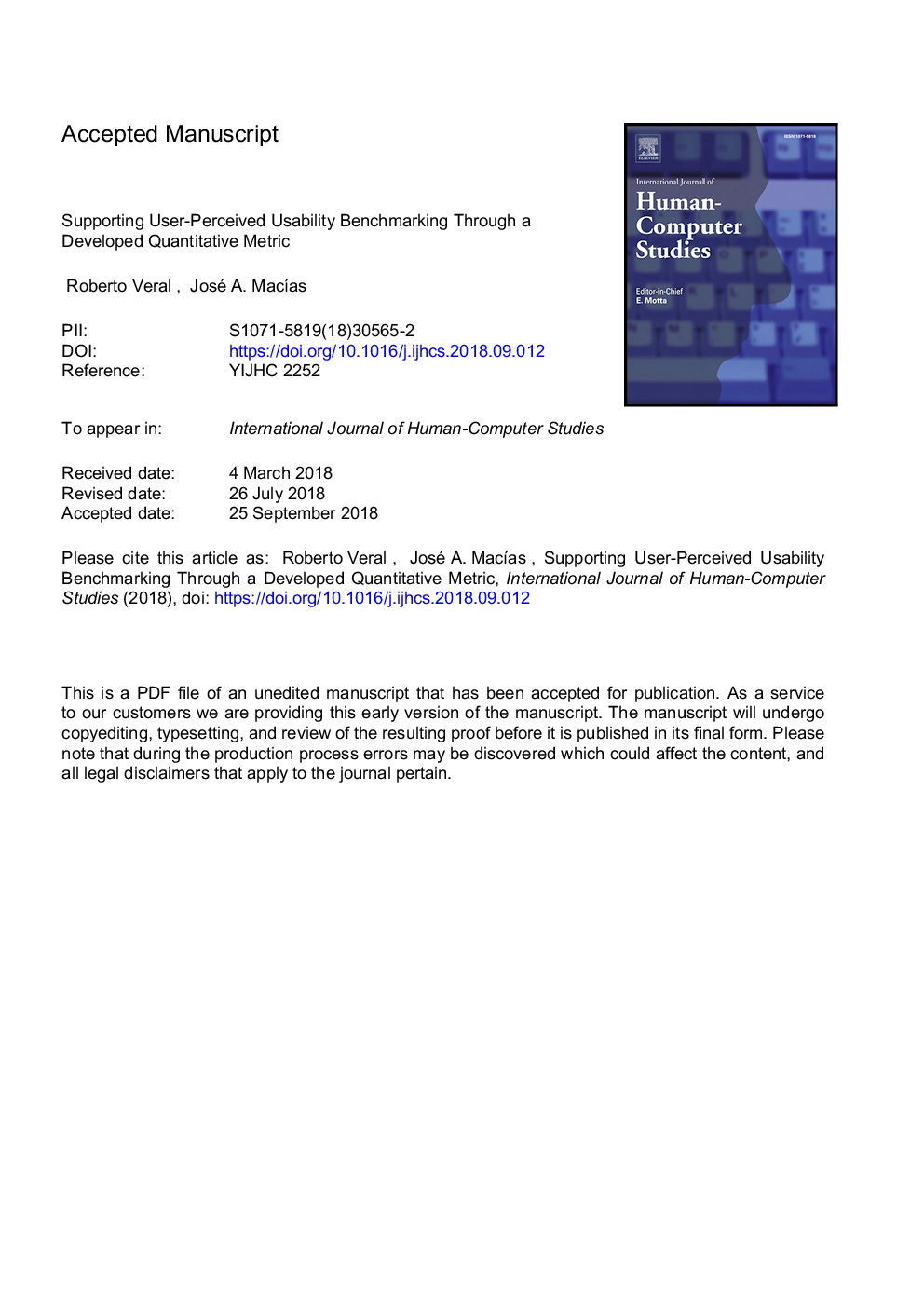| کد مقاله | کد نشریه | سال انتشار | مقاله انگلیسی | نسخه تمام متن |
|---|---|---|---|---|
| 11031640 | 1645949 | 2019 | 31 صفحه PDF | دانلود رایگان |
عنوان انگلیسی مقاله ISI
Supporting user-perceived usability benchmarking through a developed quantitative metric
ترجمه فارسی عنوان
پشتیبانی از سنجش قابلیت استفاده قابل درک توسط کاربر از طریق یک متریک کمی توسعه یافته
دانلود مقاله + سفارش ترجمه
دانلود مقاله ISI انگلیسی
رایگان برای ایرانیان
کلمات کلیدی
کاربر درک رضایت، تجربه ی کاربر، کارت های واکنش توسعه محور کاربر، متریک نرم افزار، کیفیت نرم افزار،
موضوعات مرتبط
مهندسی و علوم پایه
مهندسی کامپیوتر
هوش مصنوعی
چکیده انگلیسی
Most user-centered assessment activities for ensuring usability are principally focused on performing formative evaluations, enrolling users to complete different tasks and thus obtaining indicators such as effectiveness and efficiency. However, when considering broader scenarios, such as in User Experience (UX) assessments, user perceived satisfaction (or perceived usability) is even much more relevant. There are different methods for measuring user perception, however most of them are mainly qualitative and based on individual assessments, providing little specific support to carry out comparisons-i.e., benchmarking on user-perceived usability. In this paper, we propose a quantitative metric to achieve comparative evaluations of usability perception based on Reaction Cards, a popular method for obtaining the user's subjective satisfaction in UX assessments. The metric was developed through an empirical study. Additionally, it has been validated with usability experts. Besides, we provide a supporting tool based on the developed metric, featuring a framework to store historical evaluations in order to obtain charts and benchmark levels for comparing perceived usability from different artifacts such as software products, applications categories, services, mockups, prototypes and so on. Furthermore, an evaluation involving usability professionals was achieved, providing satisfactory results to answer research questions, thus demonstrating the suitability of the approach proposed.
ناشر
Database: Elsevier - ScienceDirect (ساینس دایرکت)
Journal: International Journal of Human-Computer Studies - Volume 122, February 2019, Pages 184-195
Journal: International Journal of Human-Computer Studies - Volume 122, February 2019, Pages 184-195
نویسندگان
Roberto Veral, José A. MacÃas,
